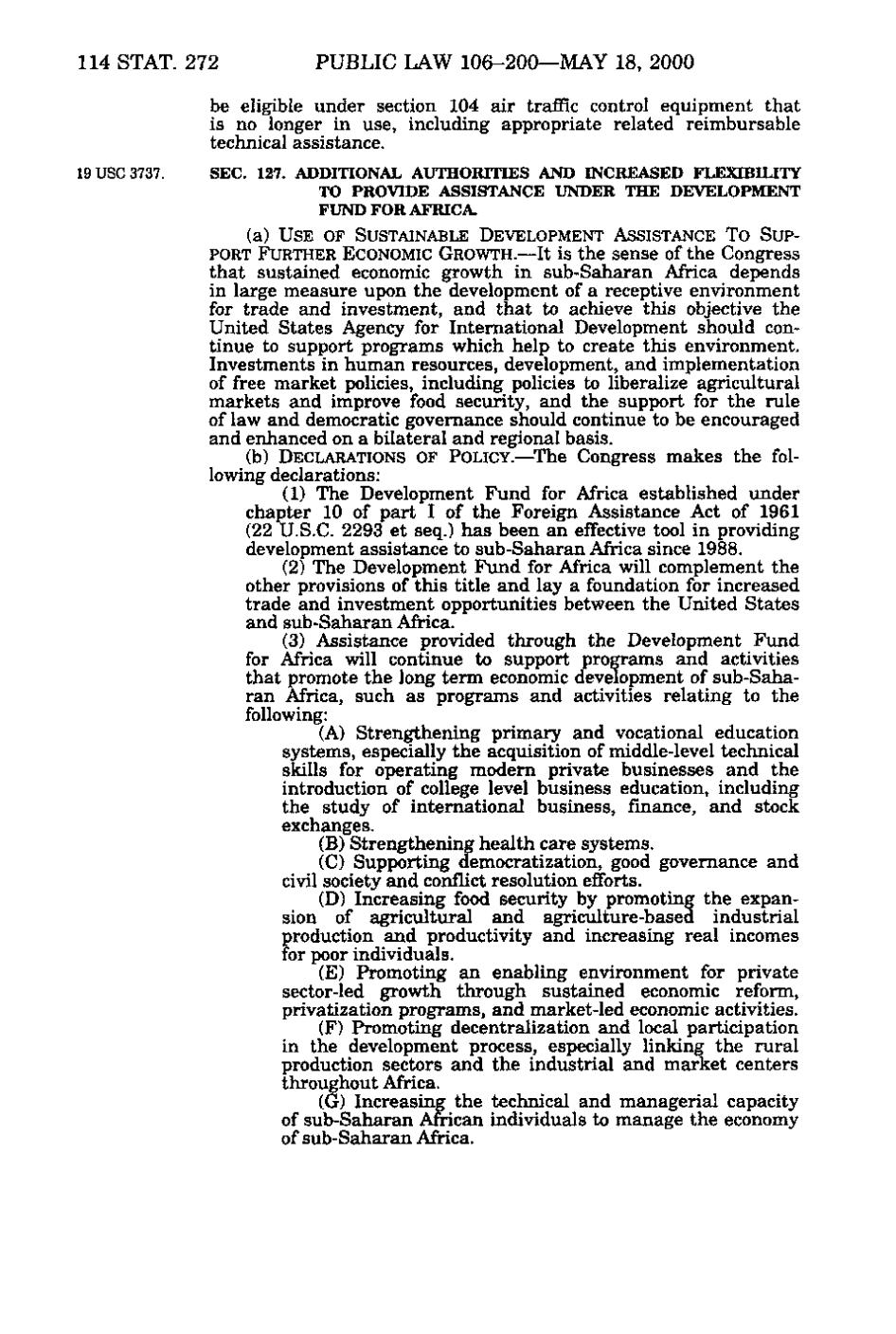114 STAT. 272 PUBLIC LAW 106-200—MAY 18, 2000 be eligible under section 104 air traffic control equipment that is no longer in use, including appropriate related reimbursable technical assistance. 19 USC 3737. SEC. 127. ADDITIONAL AUTHORITIES AND INCREASED FLEXIBILITY TO PROVIDE ASSISTANCE UNDER THE DEVELOPMENT FUND FOR AFRICA. (a) USE OF SUSTAINABLE DEVELOPMENT ASSISTANCE TO SUP- PORT FURTHER ECONOMIC GROWTH. —I t is the sense of the Congress that sustained economic growth in sub-Saharan Africa depends in large measure upon the development of a receptive environment for trade and investment, and that to achieve this objective the United States Agency for International Development should continue to support programs which help to create this environment. Investments in human resources, development, and implementation of free market policies, including policies to liberalize agricultural markets and improve food security, and the support for the rule of law and democratic governance should continue to be encouraged and enhanced on a bilateral and regional basis. (b) DECLARATIONS OF POLICY. —The Congress makes the following declarations: (1) The Development Fund for Africa established under chapter 10 of part I of the Foreign Assistance Act of 1961 (22 U.S.C. 2293 et seq.) has been an effective tool in providing development assistance to sub-Saharan Africa since 1988. (2) The Development Fund for Africa will complement the other provisions of this title and lay a foundation for increased trade and investment opportunities between the United States and sub-Saharan Africa. (3) Assistance provided through the Development Fund for Africa will continue to support programs and activities that promote the long term economic development of sub-Saharan Africa, such as programs and activities relating to the following: (A) Strengthening primary and vocational education systems, especially the acquisition of middle-level technical skills for operating modern private businesses and the introduction of college level business education, including the study of international business, finance, and stock exchanges. (B) Strengthening health care systems. (C) Supporting democratization, good governance and civil society and conflict resolution efforts. (D) Increasing food security by promoting the expansion of agricultural and agriculture-based industrial production and productivity and increasing real incomes for poor individuals. (E) Promoting an enabling environment for private sector-led growth through sustained economic reform, privatization programs, and market-led economic activities. (F) Promoting decentralization and local participation in the development process, especially linking the rural production sectors and the industrial and market centers throughout Africa. (G) Increasing the technical and managerial capacity of sub-Saharan African individuals to manage the economy of sub-Saharan Africa.
�
